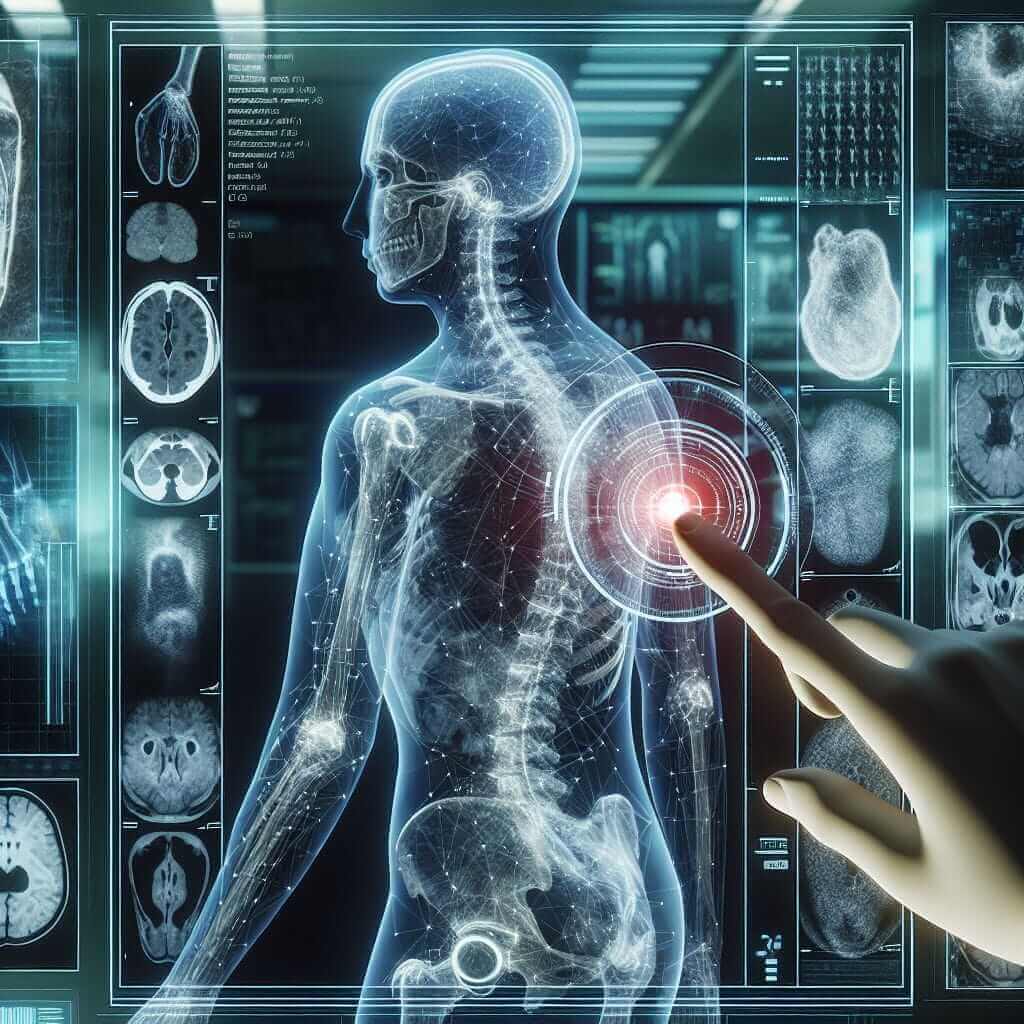The Reading section of the IELTS exam typically involves understanding complex texts and answering questions that test comprehension, analytical skills, and vocabulary. One trending topic that has surfaced in various fields, including healthcare, is Artificial Intelligence (AI). This write-up delves into the topic “How is artificial intelligence being used in healthcare diagnostics?” providing you with a sample reading passage and subsequent practice questions that closely mimic those found in actual IELTS exams. Given its relevance and frequency in modern discourse, this subject is likely to feature prominently in both academic and general training modules.
Main Content
Sample IELTS Reading Passage: Medium Text
How is Artificial Intelligence Being Used in Healthcare Diagnostics?
Artificial Intelligence is rapidly transforming numerous sectors, with healthcare being one of the most significantly impacted. AI innovations in diagnostics aim to enhance accuracy, efficiency, and overall patient outcomes.
Several AI tools in healthcare diagnostics employ machine learning algorithms to analyze vast amounts of data, from medical images to patient records. One notable application is in radiology, where AI systems are used to aid radiologists in interpreting CT scans, MRIs, and X-rays. These systems can detect anomalies such as tumors or fractures with remarkable precision, often rivaling the expertise of seasoned professionals.

Moreover, AI is being leveraged in pathology to interpret tissue samples. By utilizing convolutional neural networks, these AI systems can identify cancerous cells in histopathological images with high accuracy. This accelerates diagnosis and treatment planning, potentially saving lives.
In addition, AI has paved the way for personalized medicine. By analyzing genetic data, AI tools can predict how individuals might respond to specific treatments. This is particularly beneficial in the treatment of heterogeneous diseases like cancer, where different patients respond differently to the same treatment protocols.
Natural Language Processing (NLP) is another AI technology making waves in diagnostics. NLP algorithms process vast amounts of unstructured text data, such as electronic health records, to extract critical information. This aids in diagnosing conditions that may not be immediately apparent through traditional diagnostic methods.
Despite the numerous advantages, the implementation of AI in healthcare diagnostics does face challenges. Issues such as data privacy, the need for extensive training data, and the integration of AI tools into current healthcare systems require careful navigation. Nevertheless, the potential for AI to revolutionize diagnostics and bring about better patient outcomes is undeniable.
Practice Questions
Here are some IELTS-style practice questions based on the above passage:
Multiple Choice (Choose the correct answer)
-
What is one significant benefit of AI in radiology mentioned in the passage?
a) It can replace radiologists.
b) It can detect anomalies with precision.
c) It reduces the cost of radiological tests.
d) It makes X-ray machines more efficient. -
In pathology, how is AI useful according to the passage?
a) By reducing the cost of medical treatments.
b) By identifying cancerous cells accurately.
c) By eliminating the need for human pathologists.
d) By speeding up the delivery of medical supplies.
True/False/Not Given
-
AI tools can predict responses to treatments by analyzing genetic data.
a) True
b) False
c) Not Given -
Data privacy is identified as a challenge for AI implementation in healthcare diagnostics.
a) True
b) False
c) Not Given
Matching Headings
-
Match the following headings to the correct paragraphs:
i) Challenges in Implementing AI
ii) AI in Radiology
iii) Personalized Medicine Using AI- Paragraph 3: __
- Paragraph 4: __
- Paragraph 6: __
Answer Keys (with explanations)
-
b) It can detect anomalies with precision.
- Explanation: The passage highlights that AI in radiology can detect anomalies with remarkable precision, which is a significant benefit.
-
b) By identifying cancerous cells accurately.
- Explanation: AI is noted for its ability to accurately identify cancerous cells in histopathological images.
-
True
- Explanation: The passage states that AI tools can predict how individuals might respond to specific treatments by analyzing genetic data.
-
True
- Explanation: Data privacy is mentioned as a challenge in the implementation of AI in healthcare diagnostics.
-
Matching Headings:
- Paragraph 3: ii) AI in Radiology
- Paragraph 4: i) Challenges in Implementing AI
- Paragraph 6: iii) Personalized Medicine Using AI
Common Mistakes to Avoid
When tackling IELTS Reading sections, especially those involving technical topics like AI in healthcare, students often make the following mistakes:
- Overlooking Keywords: Important details can often be missed if you’re not paying attention to specific terms and their meanings.
- Misinterpreting the Question: Read the questions carefully to understand what is being asked before jumping to conclusions.
- Time Management: Spend the right amount of time on each question and avoid getting stuck on one.
Vocabulary to Note
Here are some challenging words from the passage, along with their meanings:
- Algorithm (n.) – /ˈælɡəˌrɪðəm/: A set of rules to be followed in problem-solving operations.
- Pathology (n.) – /pəˈθɒlədʒi/: The study of diseases, their nature, and effects.
- Convolutional (adj.) – /ˌkɒnvəˈluːʃənəl/: Relating to or involving convolutions, in particular, the convolutions of the brain.
- Histopathological (adj.) – /ˌhɪstəʊpəθəˈlɒdʒɪkəl/: Pertaining to the microscopic examination of tissue to study disease.
Grammar Tip
- Complex Sentences:
- Structure: [Independent Clause] + [Conjunction] + [Dependent Clause]
- Example: “AI systems can detect anomalies with remarkable precision, often rivaling the expertise of seasoned professionals.”
Conclusion
Practicing with high-quality reading passages and understanding common challenges can significantly boost your IELTS Reading score. Remember to stay updated with trending topics, as they are often featured in modern exams due to their relevance. Good luck with your preparations!